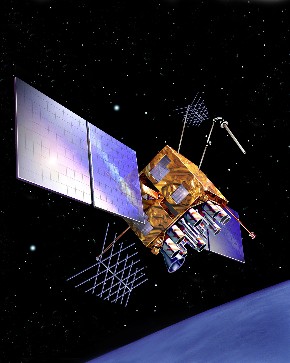
U.S-Russian Tensions Reveal Weakness in Satellite Security
On June 5, Gwynne Shotwell, president and COO of Space Exploration Technologies (SpaceX) spoke at the Atlantic Council on the current problems facing the U.S. aerospace industry and how SpaceX is working to restore American primacy in space launch technology. Since its founding in 2002 by Elon Musk, SpaceX has worked closely with NASA to develop cutting-edge technology in the commercial space launch industry, most notably through its Falcon 9 and Dragon launch vehicles.
As past ASP reports have illustrated, American assets in space, primarily GPS satellites, are essential for our military to function. From intelligence gathering to secure communication to targeting weapons, the U.S. military relies on fully-functional space assets on a daily basis, making them a prime target for future Russian and Chinese aggression. An attack on U.S. space assets would be devastating if the technology is not readily available to quickly replace damaged satellites. This fact is doubly troubling considering the U.S. currently relies primarily on Russian-made RD-180 engines to propel satellites into space.
Tensions with Russia over Ukraine as well as a Russian ban on the sale of RD-180 engines to the Pentagon have forced the U.S. to consider domestic alternatives or risk becoming incredibly vulnerable in the event of a significant problem, such as an attack or malfunction, with key space assets. Once the primary nation within the global aerospace industry, Shotwell outlined the decline of U.S. influence and subsequent reliance on other countries for aerospace technology since the 1980s. The trend has reversed to an extent since SpaceX’s founding in 2002, and Shotwell hopes that the U.S. can restore its position in the industry through an increased number of competitors that will both drive down cost and encourage innovation within the industry.
The boom in demand for GPS-driven devices has created a larger commercial market for aerospace technology, which companies like SpaceX have stepped up to fill. In an attempt to be considered for military contracts in the future, SpaceX hopes to have its rockets certified for use by the Defense Department by the end of the year. Currently, SpaceX is in the midst of a lawsuit with the U.S. Air Force in an attempt to terminate a contract granted to United Launch Alliance (ULA) which could prove problematic for SpaceX in the event that its rockets are certified.
The running joke among Air Force officials is that many of the current satellites in orbit are “old enough to vote”, indicating they are well past their design life and in desperate need to be replaced. The current reliance on Russian engines to power a key part of national security is simply unsustainable given geopolitical realities. Instead of playing favorites, the military needs to embrace the entrepreneurial spirit this nation was founded upon and allow companies like SpaceX to compete with one another. If the tech industry has shown us anything, it is that competition among rivals can result in some pretty amazing innovations.
While we can use our iPhone without giving a second thought to the technology behind it, the U.S. military doesn’t have this luxury. Our assets in space grow in both importance and vulnerability with every passing day, and the ability to quickly replace them is a primary national security concern. Instead of shutting out companies like SpaceX who have the potential to offer a reliable, relatively cheap, and domestically-produced alternative to foreign technology, the military should be welcoming them with open arms.






[…] US-Russian Tensions Reveal Weakness in Satellite Security […]
[…] about a suddenly aggressive China. The military utilizes technology produced around the world, and as our current reliance on Russian-made engines to power our space launches illustrates, it is a matter of national security that we have a multitude of reliable trading partners in the […]